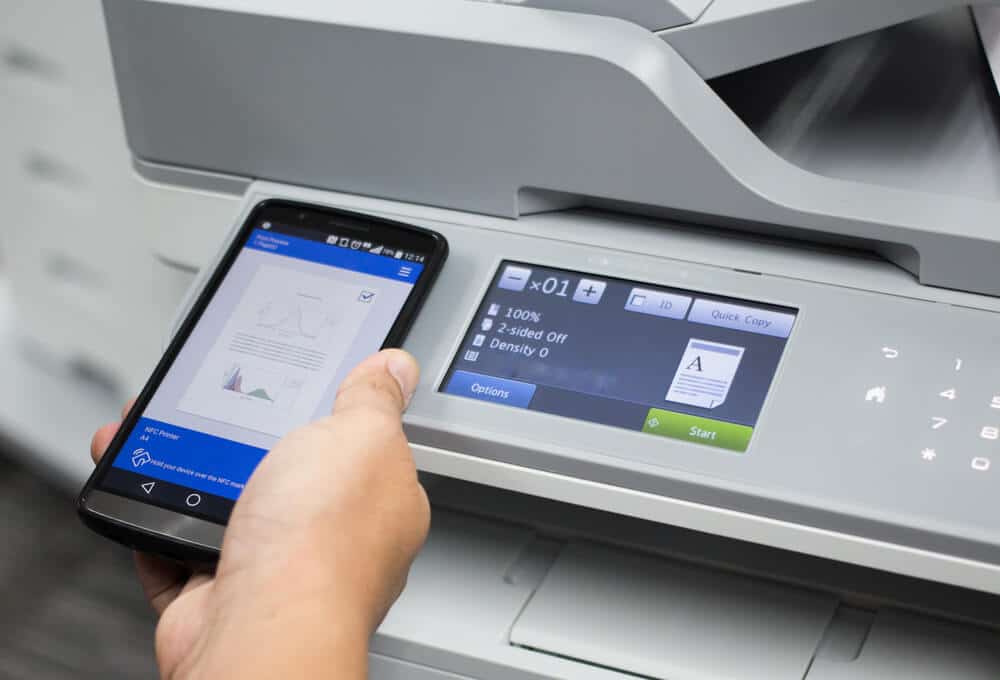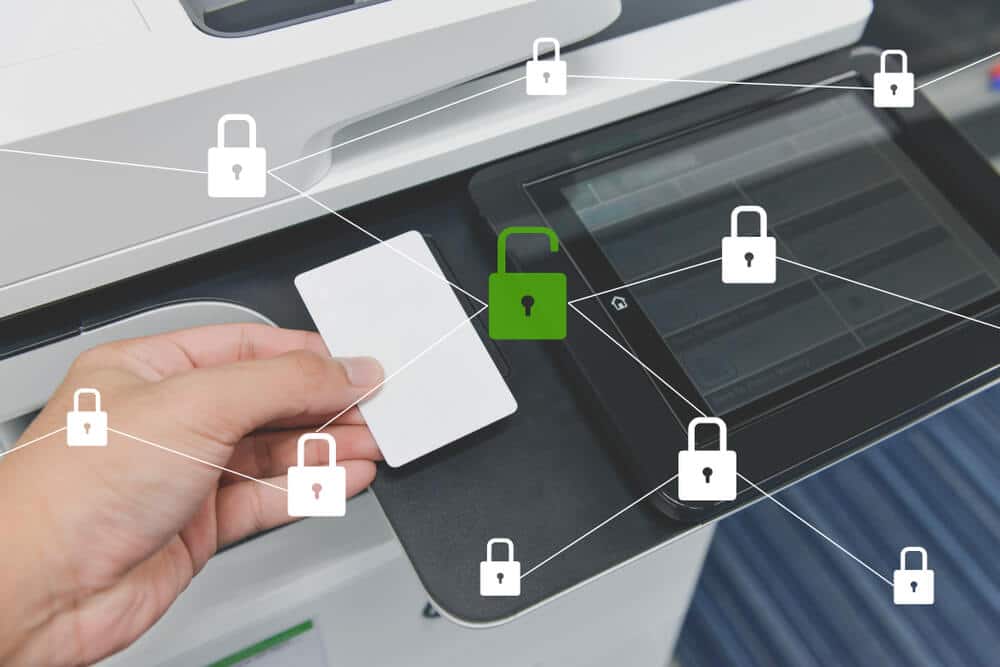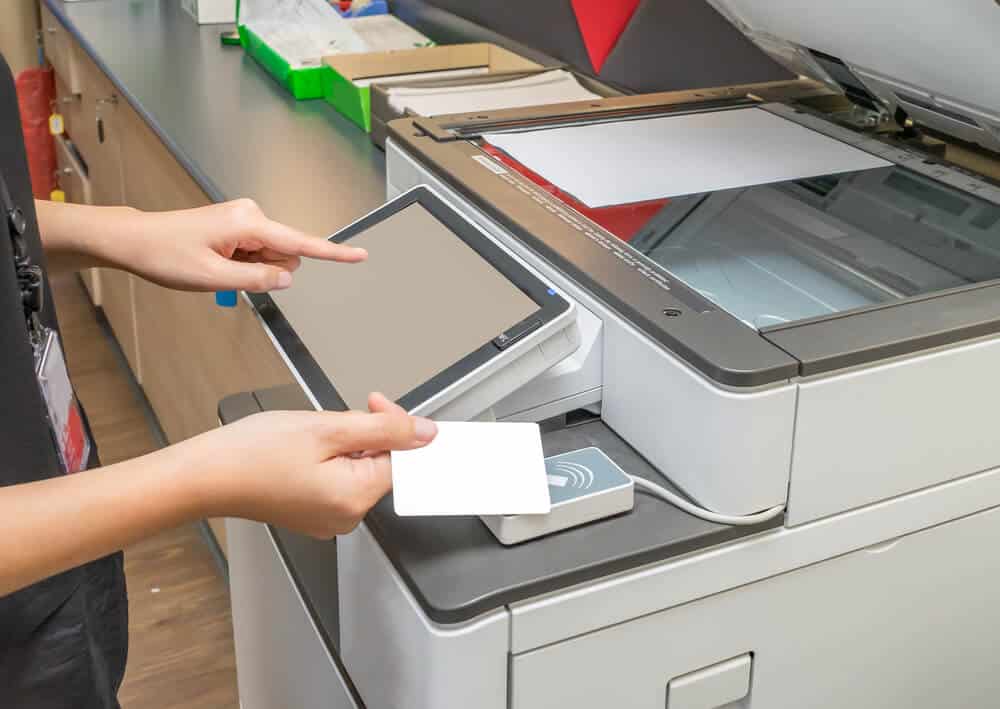Your dental practice’s printer is a tool you probably use daily to print internal documents, bills, and educational material for your patients. Did you know your printer could be an entry point for cyberattacks targeting your practice?
Here’s what you need to know about cybersecurity risks linked to your printer and the steps you can take to protect this device and your office’s security.
Why Is Your Printer a Cyber Risk?
Cyberattacks have become a crucial risk in the healthcare industry where data breaches have an average cost that exceeds $10 million and can harm patient outcomes.
Too often, dental IT departments overlook printers and the risks linked to these devices. For example, a printer located in a public area can lead to a data breach if employees print sensitive documents and let them sit.
An attacker can also target your network to intercept data in transit through a wireless printer. Multifunction printers have a cache feature that keeps a record of your printed document. This print log is a major security and compliance risk since it can contain sensitive information, including HIPAA data.
An unsecured wireless printer can become an entry point for your entire network. Once an attacker gains access to your network, they can access sensitive data or launch a DDoS attack. A hacker can target a wireless printer and get the device to connect to an unsafe network.
Printers with scan features can store company email addresses for convenience. If an attacker accesses this information, they can target these users with phishing scams, a type of attack that accounts for 45% of cyberattacks in the healthcare industry.
How to Improve Printer Security
Follow these steps to keep your printer and data security safe from cyberattacks.
Rethink Your Printer’s Location
Keep your printer in a private area. An office you can lock will have the best security. If some employees need to print sensitive documents regularly, consider purchasing individual printers they can keep at their desks to avoid having documents sit in the printer’s tray.
Plus, a solution like mounting your printer can protect this device from theft or removal by an unauthorized employee.
Update Your Printing Best Practices
Did you know that the number of pages printed dropped by 14% during COVID-19? A significant portion of print jobs aren’t necessary and can result in a significant amount of waste.
Adopt a new print management policy to encourage employees to think twice before printing a document. Educate employees about cybersecurity risks linked to printing and provide training reminders to help them identify HIPAA data. Adopting a better print management policy can also help reduce costs and waste for your dental practice.
Disable Printing Protocols You Don’t Need
Have an IT expert configure your printer and disable the printing protocols and ports you don’t use. Most printers use the default IPPS protocol, but you can disable alternatives like FTP or Telnet. You can also go further by disabling wireless printing altogether, so you don’t have to protect your data in transit.
Add a Firewall
Protecting your printer security with a firewall can prevent criminals from targeting this device from outside your network. Note that a firewall can create conflicts and make it difficult to communicate with your printer. It’s best to have an IT expert configure your firewall to prevent issues.
Configure Your Print Logs

Most modern multifunction printers have print logs that store a copy of the documents you print. These logs are helpful since they provide you with some insights into who accessed your printer and can help you detect a breach.
However, you need to configure your print logs to avoid storing sensitive information since this cache doesn’t meet the storage requirements outlined in HIPAA guidelines.
Use a Password-Protected Printer
You can manage access to your printer by using a password or PIN. This approach will prevent unauthorized users from accessing the printer. You can also use password-protected accounts to manage permissions and prevent unauthorized employees from accessing the printer’s settings.
Download Firmware Updates and Patches
Printer manufacturers release firmware updates and patches regularly to make sure their product keeps working properly and to address potential security risks.
Using a printer with outdated firmware is a major cybersecurity risk since hackers might be able to exploit a known vulnerability. If you can’t automate the process of downloading and installing these updates, create regular reminders to update your printer’s firmware.
Use Document Encryption
If you need the convenience of wireless printing, a good way to ensure security for sensitive data is to use document encryption. Using an encryption key makes a document unreadable if an unauthorized user intercepts it. Note that not all printers support encryption.
Consider a Self-Healing Printer
Self-healing printers have built-in functionalities that monitor the device’s status. Some printers have a self-healing feature that keeps track of their connection status and restores a secure connection to the default Wi-Fi network if this setting changes.
You can also find models with a self-healing feature that checks the printer’s firmware for unauthorized changes to protect the device from BIOS attacks.
Turn to Erickson Dental Technologies for Printer Security Tips

Erickson Dental Technologies provides innovative security and tech solutions for the healthcare industry. From building a secure network to protecting sensitive data with the latest antivirus products, we offer comprehensive plans to protect you from cybersecurity risks and help you meet HIPAA compliance requirements.
We can help you identify your unique risks with an initial assessment. We’ll use our findings to develop a customized plan that encompasses printer security, network threats, and other challenges. Contact Erickson Dental Technologies today to book your assessment.


